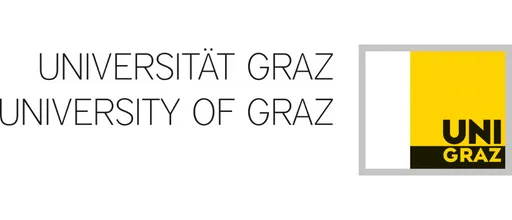
University of Graz
Dealing with IT-related methodological research issues has long been a tradition at the Faculty of Humanities at the University of Graz. Since the 1990s, applied research in the field of information processing in the humanities has been used to amass a scientific technical IT infrastructure and subject-specific expertise in the development and implementation of digital research methods in the humanities. This expertise has been brought into wider teaching and the university’s commitment to this field of research was cemented in 2008 with the establishment of the (fromerly) ‘Centre for Information Modelling in the Humanities’ (Zentrum für Informationsmodellierung in den Geisteswissenschaften), which is now the ‘Department of Digital Humanities’ (Institut für Digitale Geisteswissenschaften). In terms of content, digital editions form the central research topic at the Department. These are understood to be widely applicable methods in the humanities for the semantic and formal indexing of cultural artefacts. This is not only applicable to texts, but also to other media forms of digital representations of cultural heritage, too. In addition to digital methods for the indexing analysis of humanities research data, the Centre is also keenly interested in the sustainable preservation and long-term archiving of humanities data. This is shown by the sustainable and continuous development of the research data repository, GAMS (Geisteswissenschaftliches Asset Management System).
Aside from conceptual and technical expertise, and curatorial skills needed for the digitisation of cultural heritage, the Centre also focuses on mediation. This includes topics such as media didactics, as well as legal, ethical and social issues in the field of Open Science and in the provision of free, public access to digital resources in research and teaching. As one of the leading Austrian centres for digital humanities, the Centre for Information Modelling in the Humanities is a member of organisations DHd (Digital Humanities in the German-speaking Region) and centerNet (the International Network of Digital Humanities Centres), as well as numerous other international research frameworks (e.g. CLARIN-ERIC, DARIAH-EU) and professional organisations (e.g. TEI, ICARUS, RDA). The ADHO (Alliance of Digital Humanities Organisations) has also entrusted us with the organisation of their international annual conference in 2023.
The Graz University Library is one of the largest cultural and educational institutions in Styria with around 4 million information carriers. It is a library with universal aspirations, a scientific orientation and a public mission for the entire region. It sees itself as a “hybrid library” that acquires, manages, archives, processes and makes available both analog and digital media in the spirit of sustainable development. In addition, the library offers a comprehensive range of courses, from research to publishing scientific results; for the latter, there are contact persons in the areas of publication services and research data management.
Institutions
People
-

Walter Scholger
Dealing with IT-related methodological research issues has long been a tradition at the Faculty of Humanities at the University of Graz. Since the 1990s, applied research in the field of information processing in the humanities has been used to amass a scientific technical IT infrastructure and subject-specific expertise in the development and implementation of digital research methods in the humanities. This expertise has been brought into wider teaching and the university’s commitment to this field of research was cemented in 2008 with the establishment of the (fromerly) ‘Centre for Information Modelling in the Humanities’ (Zentrum für Informationsmodellierung in den Geisteswissenschaften), which is now the ‘Department of Digital Humanities’ (Institut für Digitale Geisteswissenschaften). In terms of content, digital editions form the central research topic at the Department. These are understood to be widely applicable methods in the humanities for the semantic and formal indexing of cultural artefacts. This is not only applicable to texts, but also to other media forms of digital representations of cultural heritage, too. In addition to digital methods for the indexing analysis of humanities research data, the Centre is also keenly interested in the sustainable preservation and long-term archiving of humanities data. This is shown by the sustainable and continuous development of the research data repository, GAMS (Geisteswissenschaftliches Asset Management System).
Aside from conceptual and technical expertise, and curatorial skills needed for the digitisation of cultural heritage, the Centre also focuses on mediation. This includes topics such as media didactics, as well as legal, ethical and social issues in the field of Open Science and in the provision of free, public access to digital resources in research and teaching. As one of the leading Austrian centres for digital humanities, the Centre for Information Modelling in the Humanities is a member of organisations DHd (Digital Humanities in the German-speaking Region) and centerNet (the International Network of Digital Humanities Centres), as well as numerous other international research frameworks (e.g. CLARIN-ERIC, DARIAH-EU) and professional organisations (e.g. TEI, ICARUS, RDA). The ADHO (Alliance of Digital Humanities Organisations) has also entrusted us with the organisation of their international annual conference in 2023.
The Graz University Library is one of the largest cultural and educational institutions in Styria with around 4 million information carriers. It is a library with universal aspirations, a scientific orientation and a public mission for the entire region. It sees itself as a “hybrid library” that acquires, manages, archives, processes and makes available both analog and digital media in the spirit of sustainable development. In addition, the library offers a comprehensive range of courses, from research to publishing scientific results; for the latter, there are contact persons in the areas of publication services and research data management.
-

Elisabeth Raunig
Dealing with IT-related methodological research issues has long been a tradition at the Faculty of Humanities at the University of Graz. Since the 1990s, applied research in the field of information processing in the humanities has been used to amass a scientific technical IT infrastructure and subject-specific expertise in the development and implementation of digital research methods in the humanities. This expertise has been brought into wider teaching and the university’s commitment to this field of research was cemented in 2008 with the establishment of the (fromerly) ‘Centre for Information Modelling in the Humanities’ (Zentrum für Informationsmodellierung in den Geisteswissenschaften), which is now the ‘Department of Digital Humanities’ (Institut für Digitale Geisteswissenschaften). In terms of content, digital editions form the central research topic at the Department. These are understood to be widely applicable methods in the humanities for the semantic and formal indexing of cultural artefacts. This is not only applicable to texts, but also to other media forms of digital representations of cultural heritage, too. In addition to digital methods for the indexing analysis of humanities research data, the Centre is also keenly interested in the sustainable preservation and long-term archiving of humanities data. This is shown by the sustainable and continuous development of the research data repository, GAMS (Geisteswissenschaftliches Asset Management System).
Aside from conceptual and technical expertise, and curatorial skills needed for the digitisation of cultural heritage, the Centre also focuses on mediation. This includes topics such as media didactics, as well as legal, ethical and social issues in the field of Open Science and in the provision of free, public access to digital resources in research and teaching. As one of the leading Austrian centres for digital humanities, the Centre for Information Modelling in the Humanities is a member of organisations DHd (Digital Humanities in the German-speaking Region) and centerNet (the International Network of Digital Humanities Centres), as well as numerous other international research frameworks (e.g. CLARIN-ERIC, DARIAH-EU) and professional organisations (e.g. TEI, ICARUS, RDA). The ADHO (Alliance of Digital Humanities Organisations) has also entrusted us with the organisation of their international annual conference in 2023.
The Graz University Library is one of the largest cultural and educational institutions in Styria with around 4 million information carriers. It is a library with universal aspirations, a scientific orientation and a public mission for the entire region. It sees itself as a “hybrid library” that acquires, manages, archives, processes and makes available both analog and digital media in the spirit of sustainable development. In addition, the library offers a comprehensive range of courses, from research to publishing scientific results; for the latter, there are contact persons in the areas of publication services and research data management.
-

Helmut W. Klug
Dealing with IT-related methodological research issues has long been a tradition at the Faculty of Humanities at the University of Graz. Since the 1990s, applied research in the field of information processing in the humanities has been used to amass a scientific technical IT infrastructure and subject-specific expertise in the development and implementation of digital research methods in the humanities. This expertise has been brought into wider teaching and the university’s commitment to this field of research was cemented in 2008 with the establishment of the (fromerly) ‘Centre for Information Modelling in the Humanities’ (Zentrum für Informationsmodellierung in den Geisteswissenschaften), which is now the ‘Department of Digital Humanities’ (Institut für Digitale Geisteswissenschaften). In terms of content, digital editions form the central research topic at the Department. These are understood to be widely applicable methods in the humanities for the semantic and formal indexing of cultural artefacts. This is not only applicable to texts, but also to other media forms of digital representations of cultural heritage, too. In addition to digital methods for the indexing analysis of humanities research data, the Centre is also keenly interested in the sustainable preservation and long-term archiving of humanities data. This is shown by the sustainable and continuous development of the research data repository, GAMS (Geisteswissenschaftliches Asset Management System).
Aside from conceptual and technical expertise, and curatorial skills needed for the digitisation of cultural heritage, the Centre also focuses on mediation. This includes topics such as media didactics, as well as legal, ethical and social issues in the field of Open Science and in the provision of free, public access to digital resources in research and teaching. As one of the leading Austrian centres for digital humanities, the Centre for Information Modelling in the Humanities is a member of organisations DHd (Digital Humanities in the German-speaking Region) and centerNet (the International Network of Digital Humanities Centres), as well as numerous other international research frameworks (e.g. CLARIN-ERIC, DARIAH-EU) and professional organisations (e.g. TEI, ICARUS, RDA). The ADHO (Alliance of Digital Humanities Organisations) has also entrusted us with the organisation of their international annual conference in 2023.
The Graz University Library is one of the largest cultural and educational institutions in Styria with around 4 million information carriers. It is a library with universal aspirations, a scientific orientation and a public mission for the entire region. It sees itself as a “hybrid library” that acquires, manages, archives, processes and makes available both analog and digital media in the spirit of sustainable development. In addition, the library offers a comprehensive range of courses, from research to publishing scientific results; for the latter, there are contact persons in the areas of publication services and research data management.
-

Elisabeth Steiner
Dealing with IT-related methodological research issues has long been a tradition at the Faculty of Humanities at the University of Graz. Since the 1990s, applied research in the field of information processing in the humanities has been used to amass a scientific technical IT infrastructure and subject-specific expertise in the development and implementation of digital research methods in the humanities. This expertise has been brought into wider teaching and the university’s commitment to this field of research was cemented in 2008 with the establishment of the (fromerly) ‘Centre for Information Modelling in the Humanities’ (Zentrum für Informationsmodellierung in den Geisteswissenschaften), which is now the ‘Department of Digital Humanities’ (Institut für Digitale Geisteswissenschaften). In terms of content, digital editions form the central research topic at the Department. These are understood to be widely applicable methods in the humanities for the semantic and formal indexing of cultural artefacts. This is not only applicable to texts, but also to other media forms of digital representations of cultural heritage, too. In addition to digital methods for the indexing analysis of humanities research data, the Centre is also keenly interested in the sustainable preservation and long-term archiving of humanities data. This is shown by the sustainable and continuous development of the research data repository, GAMS (Geisteswissenschaftliches Asset Management System).
Aside from conceptual and technical expertise, and curatorial skills needed for the digitisation of cultural heritage, the Centre also focuses on mediation. This includes topics such as media didactics, as well as legal, ethical and social issues in the field of Open Science and in the provision of free, public access to digital resources in research and teaching. As one of the leading Austrian centres for digital humanities, the Centre for Information Modelling in the Humanities is a member of organisations DHd (Digital Humanities in the German-speaking Region) and centerNet (the International Network of Digital Humanities Centres), as well as numerous other international research frameworks (e.g. CLARIN-ERIC, DARIAH-EU) and professional organisations (e.g. TEI, ICARUS, RDA). The ADHO (Alliance of Digital Humanities Organisations) has also entrusted us with the organisation of their international annual conference in 2023.
The Graz University Library is one of the largest cultural and educational institutions in Styria with around 4 million information carriers. It is a library with universal aspirations, a scientific orientation and a public mission for the entire region. It sees itself as a “hybrid library” that acquires, manages, archives, processes and makes available both analog and digital media in the spirit of sustainable development. In addition, the library offers a comprehensive range of courses, from research to publishing scientific results; for the latter, there are contact persons in the areas of publication services and research data management.
-

Martina Scholger
Dealing with IT-related methodological research issues has long been a tradition at the Faculty of Humanities at the University of Graz. Since the 1990s, applied research in the field of information processing in the humanities has been used to amass a scientific technical IT infrastructure and subject-specific expertise in the development and implementation of digital research methods in the humanities. This expertise has been brought into wider teaching and the university’s commitment to this field of research was cemented in 2008 with the establishment of the (fromerly) ‘Centre for Information Modelling in the Humanities’ (Zentrum für Informationsmodellierung in den Geisteswissenschaften), which is now the ‘Department of Digital Humanities’ (Institut für Digitale Geisteswissenschaften). In terms of content, digital editions form the central research topic at the Department. These are understood to be widely applicable methods in the humanities for the semantic and formal indexing of cultural artefacts. This is not only applicable to texts, but also to other media forms of digital representations of cultural heritage, too. In addition to digital methods for the indexing analysis of humanities research data, the Centre is also keenly interested in the sustainable preservation and long-term archiving of humanities data. This is shown by the sustainable and continuous development of the research data repository, GAMS (Geisteswissenschaftliches Asset Management System).
Aside from conceptual and technical expertise, and curatorial skills needed for the digitisation of cultural heritage, the Centre also focuses on mediation. This includes topics such as media didactics, as well as legal, ethical and social issues in the field of Open Science and in the provision of free, public access to digital resources in research and teaching. As one of the leading Austrian centres for digital humanities, the Centre for Information Modelling in the Humanities is a member of organisations DHd (Digital Humanities in the German-speaking Region) and centerNet (the International Network of Digital Humanities Centres), as well as numerous other international research frameworks (e.g. CLARIN-ERIC, DARIAH-EU) and professional organisations (e.g. TEI, ICARUS, RDA). The ADHO (Alliance of Digital Humanities Organisations) has also entrusted us with the organisation of their international annual conference in 2023.
The Graz University Library is one of the largest cultural and educational institutions in Styria with around 4 million information carriers. It is a library with universal aspirations, a scientific orientation and a public mission for the entire region. It sees itself as a “hybrid library” that acquires, manages, archives, processes and makes available both analog and digital media in the spirit of sustainable development. In addition, the library offers a comprehensive range of courses, from research to publishing scientific results; for the latter, there are contact persons in the areas of publication services and research data management.
-

Georg Vogeler
Dealing with IT-related methodological research issues has long been a tradition at the Faculty of Humanities at the University of Graz. Since the 1990s, applied research in the field of information processing in the humanities has been used to amass a scientific technical IT infrastructure and subject-specific expertise in the development and implementation of digital research methods in the humanities. This expertise has been brought into wider teaching and the university’s commitment to this field of research was cemented in 2008 with the establishment of the (fromerly) ‘Centre for Information Modelling in the Humanities’ (Zentrum für Informationsmodellierung in den Geisteswissenschaften), which is now the ‘Department of Digital Humanities’ (Institut für Digitale Geisteswissenschaften). In terms of content, digital editions form the central research topic at the Department. These are understood to be widely applicable methods in the humanities for the semantic and formal indexing of cultural artefacts. This is not only applicable to texts, but also to other media forms of digital representations of cultural heritage, too. In addition to digital methods for the indexing analysis of humanities research data, the Centre is also keenly interested in the sustainable preservation and long-term archiving of humanities data. This is shown by the sustainable and continuous development of the research data repository, GAMS (Geisteswissenschaftliches Asset Management System).
Aside from conceptual and technical expertise, and curatorial skills needed for the digitisation of cultural heritage, the Centre also focuses on mediation. This includes topics such as media didactics, as well as legal, ethical and social issues in the field of Open Science and in the provision of free, public access to digital resources in research and teaching. As one of the leading Austrian centres for digital humanities, the Centre for Information Modelling in the Humanities is a member of organisations DHd (Digital Humanities in the German-speaking Region) and centerNet (the International Network of Digital Humanities Centres), as well as numerous other international research frameworks (e.g. CLARIN-ERIC, DARIAH-EU) and professional organisations (e.g. TEI, ICARUS, RDA). The ADHO (Alliance of Digital Humanities Organisations) has also entrusted us with the organisation of their international annual conference in 2023.
The Graz University Library is one of the largest cultural and educational institutions in Styria with around 4 million information carriers. It is a library with universal aspirations, a scientific orientation and a public mission for the entire region. It sees itself as a “hybrid library” that acquires, manages, archives, processes and makes available both analog and digital media in the spirit of sustainable development. In addition, the library offers a comprehensive range of courses, from research to publishing scientific results; for the latter, there are contact persons in the areas of publication services and research data management.
-

Sarah Lang
Dealing with IT-related methodological research issues has long been a tradition at the Faculty of Humanities at the University of Graz. Since the 1990s, applied research in the field of information processing in the humanities has been used to amass a scientific technical IT infrastructure and subject-specific expertise in the development and implementation of digital research methods in the humanities. This expertise has been brought into wider teaching and the university’s commitment to this field of research was cemented in 2008 with the establishment of the (fromerly) ‘Centre for Information Modelling in the Humanities’ (Zentrum für Informationsmodellierung in den Geisteswissenschaften), which is now the ‘Department of Digital Humanities’ (Institut für Digitale Geisteswissenschaften). In terms of content, digital editions form the central research topic at the Department. These are understood to be widely applicable methods in the humanities for the semantic and formal indexing of cultural artefacts. This is not only applicable to texts, but also to other media forms of digital representations of cultural heritage, too. In addition to digital methods for the indexing analysis of humanities research data, the Centre is also keenly interested in the sustainable preservation and long-term archiving of humanities data. This is shown by the sustainable and continuous development of the research data repository, GAMS (Geisteswissenschaftliches Asset Management System).
Aside from conceptual and technical expertise, and curatorial skills needed for the digitisation of cultural heritage, the Centre also focuses on mediation. This includes topics such as media didactics, as well as legal, ethical and social issues in the field of Open Science and in the provision of free, public access to digital resources in research and teaching. As one of the leading Austrian centres for digital humanities, the Centre for Information Modelling in the Humanities is a member of organisations DHd (Digital Humanities in the German-speaking Region) and centerNet (the International Network of Digital Humanities Centres), as well as numerous other international research frameworks (e.g. CLARIN-ERIC, DARIAH-EU) and professional organisations (e.g. TEI, ICARUS, RDA). The ADHO (Alliance of Digital Humanities Organisations) has also entrusted us with the organisation of their international annual conference in 2023.
The Graz University Library is one of the largest cultural and educational institutions in Styria with around 4 million information carriers. It is a library with universal aspirations, a scientific orientation and a public mission for the entire region. It sees itself as a “hybrid library” that acquires, manages, archives, processes and makes available both analog and digital media in the spirit of sustainable development. In addition, the library offers a comprehensive range of courses, from research to publishing scientific results; for the latter, there are contact persons in the areas of publication services and research data management.
-

Sean M. Winslow
Dealing with IT-related methodological research issues has long been a tradition at the Faculty of Humanities at the University of Graz. Since the 1990s, applied research in the field of information processing in the humanities has been used to amass a scientific technical IT infrastructure and subject-specific expertise in the development and implementation of digital research methods in the humanities. This expertise has been brought into wider teaching and the university’s commitment to this field of research was cemented in 2008 with the establishment of the (fromerly) ‘Centre for Information Modelling in the Humanities’ (Zentrum für Informationsmodellierung in den Geisteswissenschaften), which is now the ‘Department of Digital Humanities’ (Institut für Digitale Geisteswissenschaften). In terms of content, digital editions form the central research topic at the Department. These are understood to be widely applicable methods in the humanities for the semantic and formal indexing of cultural artefacts. This is not only applicable to texts, but also to other media forms of digital representations of cultural heritage, too. In addition to digital methods for the indexing analysis of humanities research data, the Centre is also keenly interested in the sustainable preservation and long-term archiving of humanities data. This is shown by the sustainable and continuous development of the research data repository, GAMS (Geisteswissenschaftliches Asset Management System).
Aside from conceptual and technical expertise, and curatorial skills needed for the digitisation of cultural heritage, the Centre also focuses on mediation. This includes topics such as media didactics, as well as legal, ethical and social issues in the field of Open Science and in the provision of free, public access to digital resources in research and teaching. As one of the leading Austrian centres for digital humanities, the Centre for Information Modelling in the Humanities is a member of organisations DHd (Digital Humanities in the German-speaking Region) and centerNet (the International Network of Digital Humanities Centres), as well as numerous other international research frameworks (e.g. CLARIN-ERIC, DARIAH-EU) and professional organisations (e.g. TEI, ICARUS, RDA). The ADHO (Alliance of Digital Humanities Organisations) has also entrusted us with the organisation of their international annual conference in 2023.
The Graz University Library is one of the largest cultural and educational institutions in Styria with around 4 million information carriers. It is a library with universal aspirations, a scientific orientation and a public mission for the entire region. It sees itself as a “hybrid library” that acquires, manages, archives, processes and makes available both analog and digital media in the spirit of sustainable development. In addition, the library offers a comprehensive range of courses, from research to publishing scientific results; for the latter, there are contact persons in the areas of publication services and research data management.
-

Christopher Pollin
Dealing with IT-related methodological research issues has long been a tradition at the Faculty of Humanities at the University of Graz. Since the 1990s, applied research in the field of information processing in the humanities has been used to amass a scientific technical IT infrastructure and subject-specific expertise in the development and implementation of digital research methods in the humanities. This expertise has been brought into wider teaching and the university’s commitment to this field of research was cemented in 2008 with the establishment of the (fromerly) ‘Centre for Information Modelling in the Humanities’ (Zentrum für Informationsmodellierung in den Geisteswissenschaften), which is now the ‘Department of Digital Humanities’ (Institut für Digitale Geisteswissenschaften). In terms of content, digital editions form the central research topic at the Department. These are understood to be widely applicable methods in the humanities for the semantic and formal indexing of cultural artefacts. This is not only applicable to texts, but also to other media forms of digital representations of cultural heritage, too. In addition to digital methods for the indexing analysis of humanities research data, the Centre is also keenly interested in the sustainable preservation and long-term archiving of humanities data. This is shown by the sustainable and continuous development of the research data repository, GAMS (Geisteswissenschaftliches Asset Management System).
Aside from conceptual and technical expertise, and curatorial skills needed for the digitisation of cultural heritage, the Centre also focuses on mediation. This includes topics such as media didactics, as well as legal, ethical and social issues in the field of Open Science and in the provision of free, public access to digital resources in research and teaching. As one of the leading Austrian centres for digital humanities, the Centre for Information Modelling in the Humanities is a member of organisations DHd (Digital Humanities in the German-speaking Region) and centerNet (the International Network of Digital Humanities Centres), as well as numerous other international research frameworks (e.g. CLARIN-ERIC, DARIAH-EU) and professional organisations (e.g. TEI, ICARUS, RDA). The ADHO (Alliance of Digital Humanities Organisations) has also entrusted us with the organisation of their international annual conference in 2023.
The Graz University Library is one of the largest cultural and educational institutions in Styria with around 4 million information carriers. It is a library with universal aspirations, a scientific orientation and a public mission for the entire region. It sees itself as a “hybrid library” that acquires, manages, archives, processes and makes available both analog and digital media in the spirit of sustainable development. In addition, the library offers a comprehensive range of courses, from research to publishing scientific results; for the latter, there are contact persons in the areas of publication services and research data management.
-

Chiara Zuanni
Dealing with IT-related methodological research issues has long been a tradition at the Faculty of Humanities at the University of Graz. Since the 1990s, applied research in the field of information processing in the humanities has been used to amass a scientific technical IT infrastructure and subject-specific expertise in the development and implementation of digital research methods in the humanities. This expertise has been brought into wider teaching and the university’s commitment to this field of research was cemented in 2008 with the establishment of the (fromerly) ‘Centre for Information Modelling in the Humanities’ (Zentrum für Informationsmodellierung in den Geisteswissenschaften), which is now the ‘Department of Digital Humanities’ (Institut für Digitale Geisteswissenschaften). In terms of content, digital editions form the central research topic at the Department. These are understood to be widely applicable methods in the humanities for the semantic and formal indexing of cultural artefacts. This is not only applicable to texts, but also to other media forms of digital representations of cultural heritage, too. In addition to digital methods for the indexing analysis of humanities research data, the Centre is also keenly interested in the sustainable preservation and long-term archiving of humanities data. This is shown by the sustainable and continuous development of the research data repository, GAMS (Geisteswissenschaftliches Asset Management System).
Aside from conceptual and technical expertise, and curatorial skills needed for the digitisation of cultural heritage, the Centre also focuses on mediation. This includes topics such as media didactics, as well as legal, ethical and social issues in the field of Open Science and in the provision of free, public access to digital resources in research and teaching. As one of the leading Austrian centres for digital humanities, the Centre for Information Modelling in the Humanities is a member of organisations DHd (Digital Humanities in the German-speaking Region) and centerNet (the International Network of Digital Humanities Centres), as well as numerous other international research frameworks (e.g. CLARIN-ERIC, DARIAH-EU) and professional organisations (e.g. TEI, ICARUS, RDA). The ADHO (Alliance of Digital Humanities Organisations) has also entrusted us with the organisation of their international annual conference in 2023.
The Graz University Library is one of the largest cultural and educational institutions in Styria with around 4 million information carriers. It is a library with universal aspirations, a scientific orientation and a public mission for the entire region. It sees itself as a “hybrid library” that acquires, manages, archives, processes and makes available both analog and digital media in the spirit of sustainable development. In addition, the library offers a comprehensive range of courses, from research to publishing scientific results; for the latter, there are contact persons in the areas of publication services and research data management.
 Department of Digital Humanities
Department of Digital Humanities  University of Graz Library
University of Graz Library